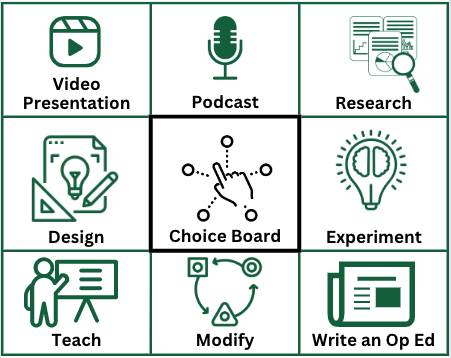Self-Belief and Student Success
One factor that can greatly impact our ability to perform is our belief that we can achieve what we want to in a given context. If we believe we can do something we are far more likely to succeed. It could be argued that believing we can do something is simply a matter of knowing ones own strengths and weaknesses. Research has demonstrated, however, that direct manipulations of these beliefs can have an impact on performance and behavior.
A simple example from a study done many years ago involved individuals being given randomly positive or negative feedback on their muscular endurance. These individuals were then tested on different tasks requiring muscular endurance. Those given positive feedback about their ability did better than those given negative feedback. Perhaps more importantly in follow-up competitions when these individuals failed, those who had been lead to perceive their ability positively responded with greater effort and those who had negative messages performed worse.
Independent of ability, self-belief can have a significant impact on performance in a given situation (Haidt & Rodin, 1999). In addition, those who have doubt in their own ability to perform have been shown to give up quickly when faced with difficulty while those who have positive beliefs have been shown to respond to challenge with greater effort.
Why should this matter in higher education? I believe the key is that in most cases knowledge and skills in a particular area or subject do not translate into good performance on their own. Skills and understanding in a discipline are most useful if one believes in one’s ability to meaningfully utilize them. These beliefs can also impact significantly on an individual’s response to challenges and failure in a course.
Equally important is thinking of self-belief as able to be impacted by context or direct intervention (as in the muscular endurance example above) and not a stable trait that is inherent to an individual.
So what might this mean for teachers in higher education? What can we do to influence our student’s belief in their ability and how can we create environments that grow rather than diminish it?
Drawing on the work of Bandura (1997) I would suggest the following ideas as a starting point:
- Make students aware of role models they may relate to who succeeded in similar circumstances. This is important particularly for those groups where role models may not be as visible such as women in subject areas typically dominated by males or vice versa, or in programs that have not had great student ethnic diversity.
- Provide students with genuine positive messages about their capacity to improve their grade on a course through effort.
- Provide students with opportunities to take on tasks that are appropriately challenging for their current ability level so they can experience success through effort.
- Design courses so that students feel they have control of their own success (i.e. if they apply effort in appropriate ways they can succeed). This may involve things like ensuring expectations are clear and discussed at the start of a course (assignments, due dates, etc.) and making the process of assessment and grading as transparent and understood as possible through things like grading rubrics, peer and self assessment and lower stakes assessment early in a course so feedback can be used to improve their final outcome.
These items are also known to improve student learning so are not additional things that need to be done but rather actions that can improve not only knowledge and skills but also a student’s belief that they can apply those to achieve their goals and succeed.
Bandura, A. (1997). Self-efficacy: The exercise of control. New York: W.H. Freeman and Company.
Haidt, J. & Rodin, J. (1999). Control and Efficacy as Interdisciplinary Bridges. Review of General Psychology, 3(4), 317-4337.



One Comment
Shelley McLoughlin
Excellent article, Nancy.